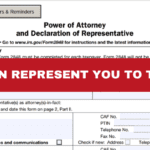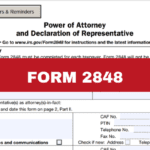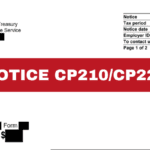If you owe taxes, one of the most common concerns that may come to your mind is whether the IRS can take your home and seize it. It’s a daunting prospect, and understandably so. However, understanding the nuances of IRS collection practices can provide clarity and alleviate some of the anxiety surrounding this issue.
Can the IRS take my house?
First and foremost, it’s essential to recognize that the IRS does indeed have the authority to seize assets, including real estate, to satisfy unpaid taxes, including but not limited to back taxes. However, this drastic measure is typically a last resort and is not initiated without ample warning.
Generally, the IRS initiates the tax collection process by sending a Notice of Taxes Due, informing the taxpayer of the owed amount. Failure to respond prompts the IRS to issue a Demand for Payment, detailing the consequences of non-compliance. If the matter remains unresolved, the IRS issues a Notice of Intent to Levy, signaling the possibility of asset seizure, including real estate, to settle the debt.
It’s crucial to note that the IRS prefers to work with taxpayers to find a reasonable solution before resorting to asset seizure. There are various options available to address tax debts, such as payment plans, offers in compromise, and currently not collectible status.
Additionally, certain protections and exemptions exist to prevent undue hardship. For example, homestead exemptions may shield a portion of the taxpayer’s primary residence from seizure, depending on state laws and the value of the property.

Steven N. Klitzner: Tax Attorney Based in Miami, Florida
As a tax attorney, my role is to guide clients through the complexities of the tax system, advocate on their behalf, and explore all available options for resolving tax debts. If you are a Florida resident wondering if the IRS can take your house in Florida, or if you are facing IRS collection actions or have concerns about your tax liabilities, don’t hesitate to call my office at (305) 564-9199 for a free and confidential consultation. With timely intervention and strategic planning, it’s often possible to avoid the most severe consequences, including the loss of your home.







 Steven N. Klitzner, P.A. is a tax attorney based in Miami, Florida. He has been practicing tax law for over 40 years, and currently holds a 10.0 rating by Avvo. Mr. Klitzner was appointed to the IRS Service Advisory Council in 2021 and is...
Steven N. Klitzner, P.A. is a tax attorney based in Miami, Florida. He has been practicing tax law for over 40 years, and currently holds a 10.0 rating by Avvo. Mr. Klitzner was appointed to the IRS Service Advisory Council in 2021 and is... 





